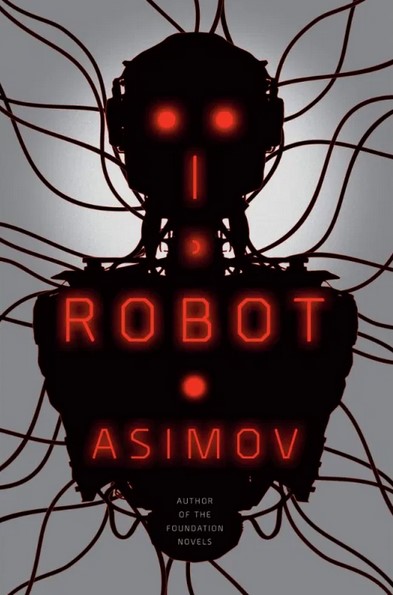Overall, this was an enjoyable series of stories. It tracks the life of Susan Calvin, or rather, the various robot situations that she has been tangentially involved in. As a robopsychologist, she frequently gets called to resolve situations involving the Three Laws of Robotics. In cases where she isn't present, we still see some aspect of the Laws being discussed by other characters to explain unusual robot behavior. For example, we see the recurring engineers Donovan and Powell who tend to be sent to remote corners of the solar system to oversee new robot prototypes in action. The stories are chronological so we see a general progression of clever robots as technology improves with them.
There are a few incorrect predictions throughout the book. For example, the fact that we would have interplanetary and even interstellar travel by this time. And that the population of the Earth would only be in the 3 billions. Regardless, the spirit of it is there and it's always cool to see how the past thought the future would look like.
In terms of robots, this naturally can be compared with today's growth in artificial intelligence (AI) systems. There are strict laws in Asimov's robots, which prevent their misuse while AI is not yet regulated, at least in the US. Asimov's robots have a lot of mechanical description and while it's true that real-world robots exist, in our day AI is mostly digital. Even in Asimov's robots there is the idea that the positronic brains are hard-coded, somehow, and that is how robots are made, while we are seeing more on and more that AI systems are just fed raw data and, though some guidelines, are then capable of generating text or images. The approach feels, at least to me, fundamentally different.
In the end, this was a fun set of stories and one that has a more positive look towards the future both for humanity and its robots. One can hope that we learn from stories like this.

No comments:
Post a Comment
Note: Only a member of this blog may post a comment.